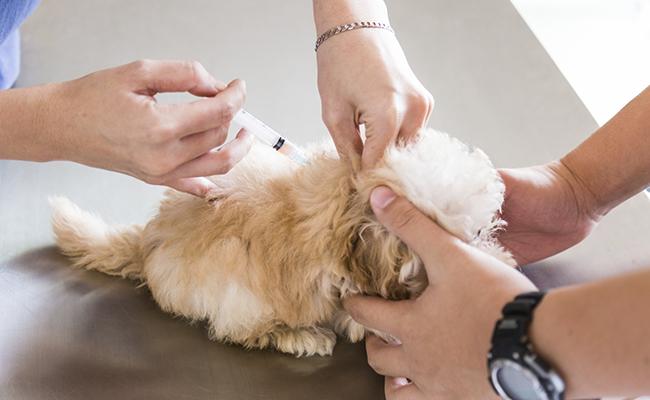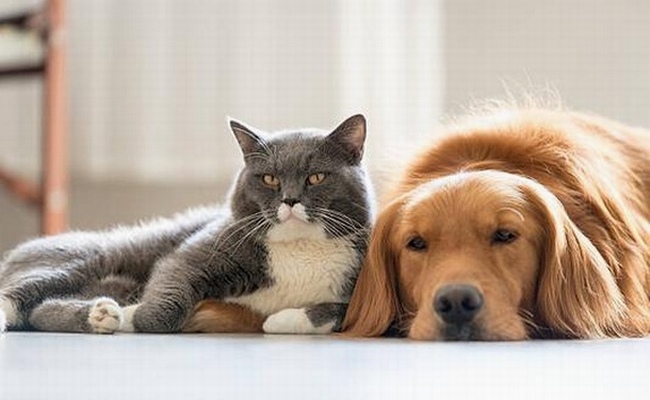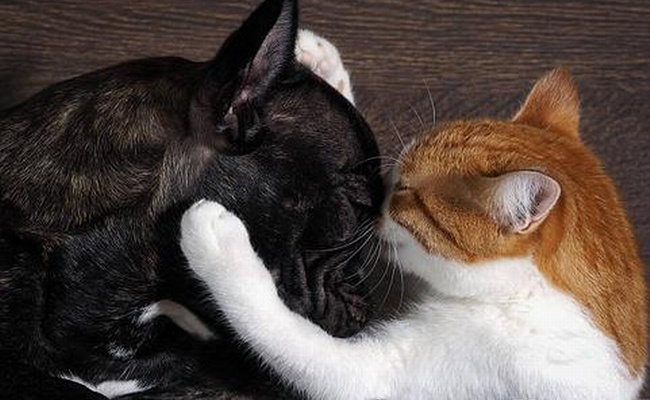Vaccinations



Vaccinations for my pets
Who needs vaccinations?
We recommend vaccinations as an essential part of your pets well being. They are done to provide a safe level of protection against a number of extremely serious, potentially fatal diseases in animals , as well as a number of very disabling conditions.
When do we vaccinate my pets?
Vaccinations work by stimulating the animals immune system into recognizing potential disease threats and then when exposed to those threats, mounting a massive immune response to eliminate the threat. Young animals get a little bit of protection from their mother (maternal immunity), however that wanes after 6-8 weeks so all young puppies and kittens get a "primary course" of injections to give then adequate immune cover to protect against disease.
As adult pets, its important that your veterinarian, in consultation with yourself determine what is the appropriate vaccination regime, taking into account your pets environment and lifestyle.
Dogs
The vaccinations for puppies and dogs fall into 2 categories. There are the "core" vaccinations C3 (canine distemper, hepatitis and parvovirus), and the "non core" vaccines of kennel/canine cough (Bordetella bronchoseptica and parainfluenza). These are combined as either a C4 or C5 vaccine.
Puppies
Vaccination schedule
- 6-8 weeks - First vaccination - C3 vaccine
- 12 weeks - Second vaccination - C5 vaccine
- 16 weeks - Third vaccination - C4 vaccine
Adult Dogs and Booster Vaccinations
12 months after your puppies last 16 week vaccination, another booster vaccination is required to maintain adequate long term immunity.
In the years following this, we recommend 3 yearly (triennial) vaccines for the core diseases (DHP, distemper, hepatitis and parvovirus), and still yearly vaccinations for the non core vaccinations (canine/kennel cough),
During your pets annual health checks, your Vet will help determine what is the best and appropriate vaccination regime base on your pets lifestyle and environment.
If necessary, we also have vaccine titre testing available to check your animals immunity levels to a few of the vaccinatable diseases. This can be discussed with your vet if you, or they feel it is appropriate.
Cats
Cat vaccines also fall into the two categories of the "core" vaccinations F3 (feline herpes virus,calicivirus and panleukopaenia), and the "non core" vaccines of feline chlamydia and feline leukaemia virus. These can be combined as the F5 vaccine.
Kittens
Vaccination schedule
- 6-8 weeks - First vaccination - F3 vaccine
- 12 weeks - Second vaccination - F5 vaccine
- 16 weeks - Third vaccination - F5 vaccine
Adult Cats and Booster Vaccinations
12 months following your cats 16 week vaccination, a booster vaccination is recommended for ongoing immune cover.
Your veterinarian, in consultation with you, will determine the best long term vaccination regime, to best protect your feline friend, dependant on your cats lifestyle and environment.
Feline Immunodeficiency Virus (Feline AIDS)
If your cat is regularly exposed to the outdoors (and other neighbourhood cats), it is worthwhile considering incorporating the FIV vaccine into your cats vaccination regime. They can be given from 8 weeks of age.
Unvaccinated pets are unfortunately always at risk of contracting very serious, potentially fatal diseases. So it is important to always maintain an adequate vaccination regime.
So if you have any question or queries at all, please contact or friendly team at Larkhill Small Animal Hospital.